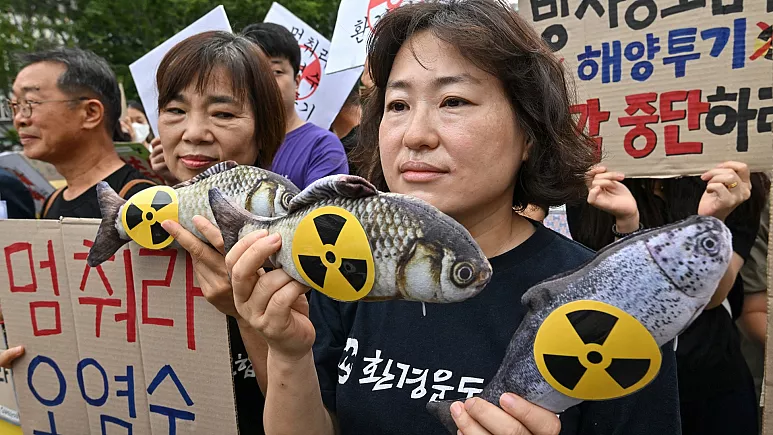In recent months, China and Japan have been engaged in a heated trade dispute over Japan’s decision to release wastewater contaminated with radioactive tritium from the Fukushima Daiichi nuclear power plant into the Pacific Ocean. The dispute has escalated into a full-blown “seafood war,” with both countries imposing bans on seafood imports from the other.
The Origins of the Dispute
In March 2011, a massive earthquake and tsunami triggered a nuclear meltdown at the Fukushima Daiichi power plant in Japan. In the aftermath of the disaster, large quantities of radioactive water were released into the Pacific Ocean. The Japanese government has been working to decontaminate the water, but even after treatment, it still contains traces of tritium, a radioactive isotope of hydrogen.
In April 2021, Japan announced that it would begin releasing the treated wastewater into the Pacific Ocean. The decision was met with immediate opposition from China, South Korea, and other countries in the region. These countries expressed concerns that the radioactive water could contaminate seafood and pose a risk to human health.
China’s Trade Ban
In August 2023, China banned all imports of Japanese seafood. The ban was imposed on the basis of the World Trade Organization’s phytosanitary measures rules, with China accusing Japan of treating the sea like its own “personal sewer.” However, many experts believe that the ban is motivated more by political considerations than by environmental concerns.
Japan’s Response
Japan has condemned China’s trade ban as “unjustified” and “discriminatory.” The Japanese government has also launched a public relations campaign to reassure consumers that Japanese seafood is safe.
The Impact of the Dispute
The seafood war has had a significant impact on both the Japanese and Chinese fishing industries. In Japan, seafood exports have plummeted by as much as 90%. In China, the ban on Japanese seafood has led to a shortage of seafood and higher prices.
The Role of the United States
The United States has expressed support for Japan in the seafood war. The US government has said that it believes Japan’s wastewater treatment process is safe and that China’s trade ban is unjustified. The US has also increased its imports of Japanese seafood in an effort to help offset the losses caused by China’s ban.
The Future of the Dispute
It is unclear how the seafood war will end. Both China and Japan are showing little willingness to back down. The dispute is likely to continue for some time, with both countries using trade sanctions as a tool of coercion.
Conclusion
The seafood war between China and Japan is a complex and multifaceted issue. It is a story of trade bans, disinformation, and geopolitical tensions. The war has had a significant impact on both countries, and it is likely to continue for some time.

